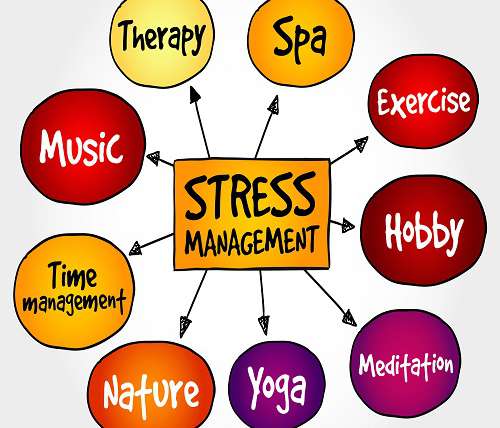How to Manage Your Everyday Stress – Part One
Overview
My name is Kishore Chandiramani and I work as a psychiatrist in Staffordshire, England.
Today we are going to talk about how to manage your everyday stress and I would like to begin with defining stress. How to define stress and for this, I have picked up a very simplistic definition of stress.
The stress can be defined as the gap between the demands placed on us on one hand and our abilities to cope with it on the other. If the demands are excessive or too many and our abilities to cope with them are low then we are going to experience major stress. However, on the contrary, if the demands placed on us are low and our abilities to cope with them are high then the stress experienced by us would be minimal.
The second definition that I would like to discuss would be in terms of an emotional reaction that stress is an emotional reaction that can help in response to the external circumstances and it can also happen in response to what’s going on in our minds.
Now coming back to the first definition of stress and the notion of the demands placed on us this can be further subdivided into two categories the actual demands that are placed on us from the external world and the second category demands that we place on ourselves as a result of our own life goals, ambitions, notions of success and achievement etc.
If we are to manage our life stress we have to work at these two levels; trying to reduce the demands on us and secondly trying to increase our coping abilities.
How do we reduce the demands placed on us, I would like to tell you a little story here – there was a world famous archer and he was visiting a village on holiday and whilst he was just walking around he saw a mud wall and on that mud wall there were dozens of arrows shot and to his surprise he saw that all the arrows were shot in the bullseye and there were a few bullseyes on the wall and that was a feat beyond his own skills and he got curious to know who is this person who has done it. When he asked around he was told that it’s a boy in the village who has done it, he got even more curious to meet this boy. Finally, he managed to meet him, and he asked this boy how did you manage to do it I am a world-famous archer I am a Gold Medallist; I can’t do this and how did you do this. The boy said its very simple I can explain it to you, I first shoot the arrow and then I draw the bullseye around it. Now that can be seen as a joke and many of you may not agree with this approach that you make whatever is in your reach today your life goal. It goes against the teachings from society that we must think big if we want to achieve big.
John F Kennedy thought of the Moon and that enabled the mission to Mars. Elon Musk has started thinking along the lines of inhabiting Mars planet. I fully endorse that way of thinking that we should think big and have big long term plans, we should try to reach out to the Moon and the stars but if our hands and feet are shackled and we remain obsessed with the Moon and the stars that kind of thinking is not going to help. We have to forget the Moon and the stars and focus on the shackles and once we are able to come out of the shackles it will be easy for us to achieve the goals so it is important to break down the big goals into smaller chunks and ask ourselves what can be achieved easily today if we have to do a thousand mile journey but if we focus on how many miles can I do today in an easy going manner without stretching myself too much then step by step we will be able to cover the thousand miles stretch.
So one of the strategies of stress management is to reflect on our long term goals and short term goals, try to break bigger tasks into smaller ones, see what can be easily achieved and make that the goal.
If tidying your room is your goal and it seems too big then just look at fifteen minutes or half an hour set an alarm and leave the rest for another day or later, you will be surprised how much you can achieve in the fifteen or thirty minute time slot.
Secondly, there are certain fictive goals i.e. false goals that we have created for ourselves and that they may not be consistent with our realities because these goals are adopted from outside to keep up with the Joneses and Smiths and a reflection on that can be helpful.
I had a client, and his main goal was to achieve a PhD qualification in his chosen subject and his condition was that during the therapy I will not deflect him from his goal, and he had already made six unsuccessful attempts at achieving this.
Some individuals have a goal of eliciting a certain specific response from a certain individual and that is not forthcoming, and any alternatives are not acceptable to them.These could be classed as self-imposed goals in life which can create more stress.
If you are trying to control your life from A to Z you will experience stress at every step but if you let go and be open to change, do your best keeping in mind all the goals you have thought about in an effortless manner you will be able to achieve all the goals.
© Kishore Chandiramani, Consultant Psychiatrist
Emotions Clinic, Education and Training Centre Cic, Staffordshire, England
www.undoyourstress.com
Image courtesy: https://www.qminder.com/stress-management-tips/





